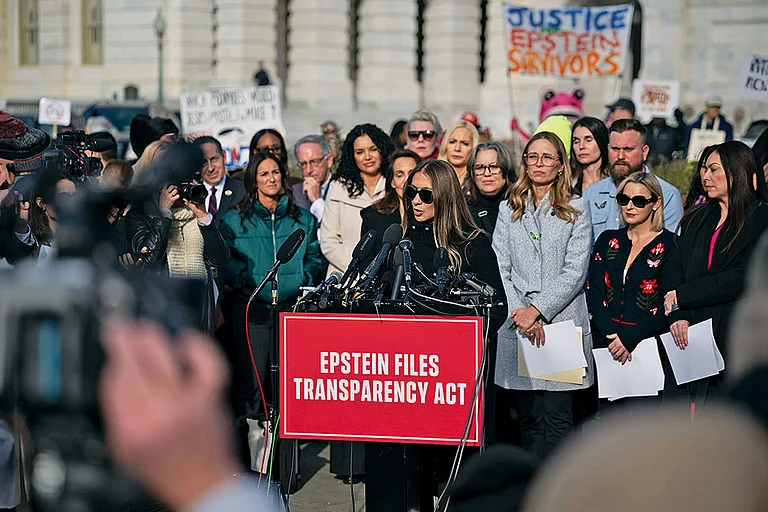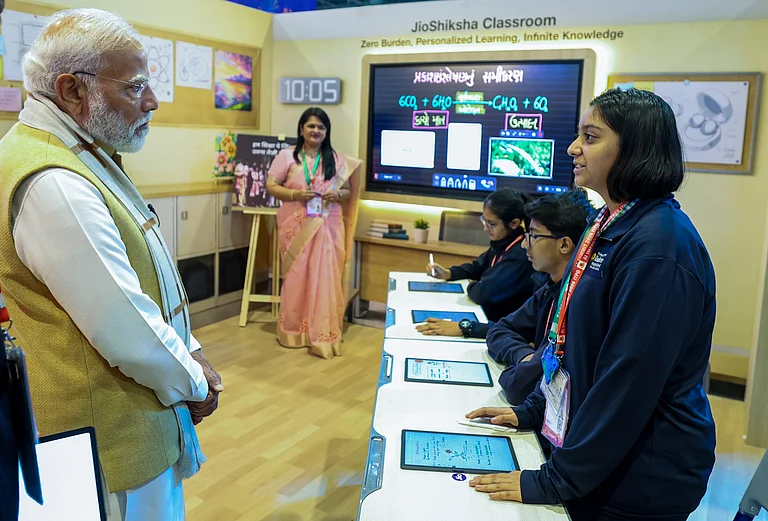
Summary of this article
This was first published in June 2022 as part of the 'Still I Rise' magazine issue
One fine morning, Shanti (name changed) marshaled courage to speak up about what she was going through. She decided not to succumb to the pang of numbness she endured each time she received vulgar messages that her colleague in a government school of Gwalior district kept sending her. She endured it for three months until she decided she had had enough and spoke up.
It was January 2019, the time around which an international movement called #MeToo was gaining prominence in India. #MeToo was a social-media-driven campaign that started in 2017, when women across the globe started speaking up against sexual harassment, inspired by American activist and rape survivor Tarana Burke. In India, #MeToo began with allegations by and against Bollywood celebrities, and gathered steam on social media. As a result, small towns and rural India remained blissfully unaware. Shanti too hadn’t heard of it. She got to know about it weeks after she had called out her harasser.
“I was not aware of #MeToo, before I read about it in newspapers, after someone accused (actor) Nana Patekar,” she said. For Shanti, it was a relief. Her harasser was suspended for a month and later transferred to a different school.
But for many women, it is not easy to speak up, especially in rural areas where conservative and regressive mores automatically tend to put the blame on women who speak up. Which explains why the movement had little impact in rural areas, where women are subjected to societal pressure along the lines of “saving the marriage” or “keep marriage prospects alive”, and the interconnectedness of life impedes upon the possibility of public support for the survivors. Women who speak up are inevitably deemed to have defied the social order of the village society. In case of working women in the informal sector, losing a job is the most deterring factor stopping them from coming forward because the design of the informal sector, for instance construction, is based on proprietorship. So often, the harasser is also the one who addresses these complaints.
However, in a supportive environment, women do speak up. Rinku Parihar, a social activist in Rajasthan, says there is little awareness of #MeToo in rural areas. “But girls do speak out against behaviour of men. Like in schools, where girls share with each other and even with female teachers their experiences of family members or neighbours who have sexually harassed them.” But largely, social pressure hinders their attempts at speaking up.
The #MeToo movement did not have much impact in rural India the way it had played out in metro cities, especially in industries like the media, academia and Bollywood. However, penetration of social media somewhat gave women a platform to vent out. Young girls with access to internet found that a support system exists outside the creaking institutions.
“#MeToo engendered the beginnings of a conversation around sexual harassment, however much filtered and careful it might have been. For years we waited for this moment when sharing of our anguish wouldn’t carry the threat of repercussions,” says Anupama Bhardwaj, who works with an NGO on girl’s education. Though the movement didn’t end negative repercussions completely, but “we realised that there is a support system in place for us”.
In case of sexual harassment, a girl needs a steady support system and counseling, otherwise it becomes tough for them to speak up, says Kirti Tomar, who works at an NGO working with adolescent girls. “The most frustrating part of the process is that the counseling is handled by an outsourced consultant, who is hardly equipped to handle such matters,’’ she adds, hinting that the Vishaka guidelines don’t adequately cover such issues. #MeToo was possible because the urban middle class women who spoke up had a support system and access to expensive counseling, which rural women lack.
However, there have been initiatives to take the #MeToo movement into the hinterland and provide a platform for women to share their stories. An app called Bandhan Tod in Bihar, developed by NGO Gender Alliance, is an example. However, despite its well-meaning motive, the app has been downloaded only 500 times, and at present is not functioning properly, as this reporter found out.
Prashanti Tiwari, an official at Gender Alliance, says the app has features like geo-tagging and a panic button. “The app was earlier designed to report cases of child marriage. But when #MeToo happened, we upgraded it to allow women to share their stories of sexual harassment.”
She adds, “Rural women needed a platform to tell their stories, and Bandhan Tod gives them that.”
Khabar Lahariya, an all- women media platform, has been consistently highlighting stories of rural women who faced sexual harassment. “We did a series of reports on sexual harassment,” says Srishti from the outreach team of Khabar Lahariya. “There were many stories in big cities around #MeToo. So, we attempted to extend it to the hinterland.”
Women reporters of Khabar Lahariya shared that they themselves have to constantly deal with harassment. In an open letter published in 2018, they wrote, “At the end of the day, our struggles are of lone women operating with few avenues to reach out, with little or no support to fall back on, at home or in the world. Whatever defense mechanisms we have, come from our own instincts, dressing down our personalities, keeping multiple SIM cards, or leaving a trail of breadcrumbs, creating our own informal networks for help when we’re in danger.”
All in all, #MeToo is a new social movement—a departure from old social movements that were mostly centered around material rights—focusing instead on changes in culture, identity and lifestyle. So, the merit of #MeToo is that it started a conversation. Despite its lack of reach, it has managed to engender a support system, which is slowly percolating everywhere.





















